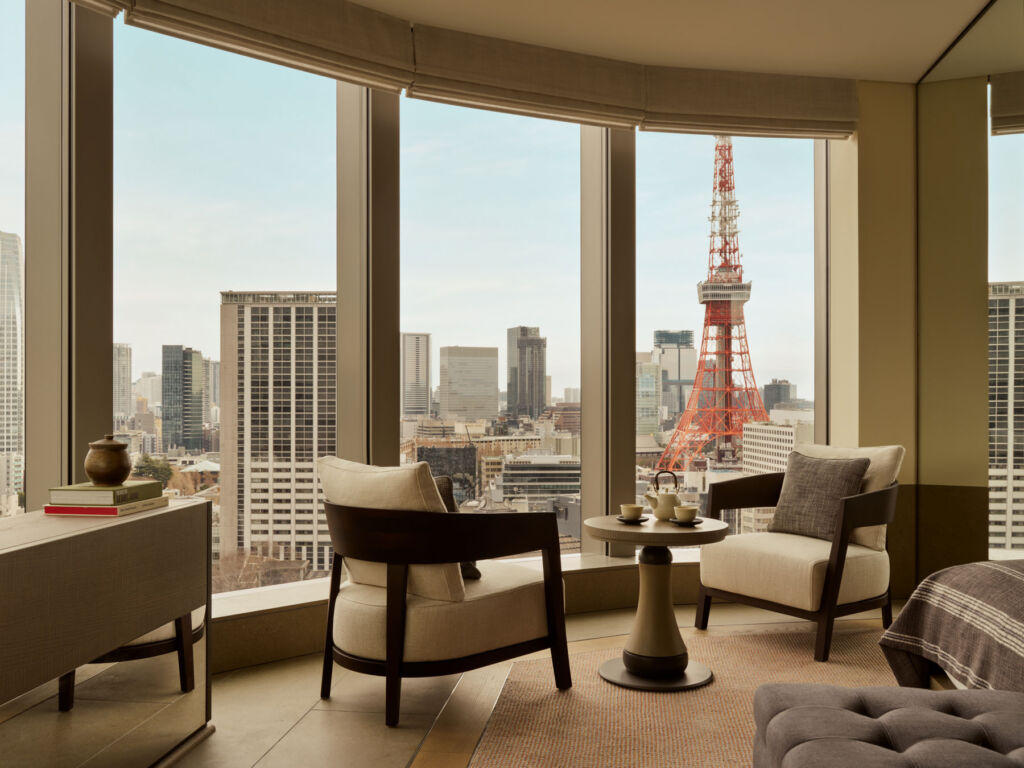
Janu Tokyo is a newly opened hotel designed by Jean-Michel Gathy. It opened its doors for business in March 2024, becoming the flagship of Aman’s new sister brand. Below, we look at some of Jean-Michel’s ideas that have helped to put clean air between it and others.
Jean-Michel Gathy boasts an enviable resume, being the designer of Aman New York (2022), One & Only Dubai (2024) and other iconic hotels around the world. The designer is known for having an unwavering commitment to perfection and an ability to craft captivating spaces that encapsulate the essence of luxury brands.
The newly opened project to which he has lent his skills is located in the vibrant heart of the Azabudai Hills district and offers a new generation of guests a beautiful haven of serenity.
Janu Tokyo has been designed with younger guests in mind. It has a sense of a modern urban village thanks to its embodiment of the city’s rich cultural fabric through its appreciation of cuisine, art, and design. Its location is one of its most attractive features as it acts as a gateway to Tokyo’s finest attractions, being within easy reach of Roppongi and Toranomon, districts known for their buzzing late-night bars and clubs.
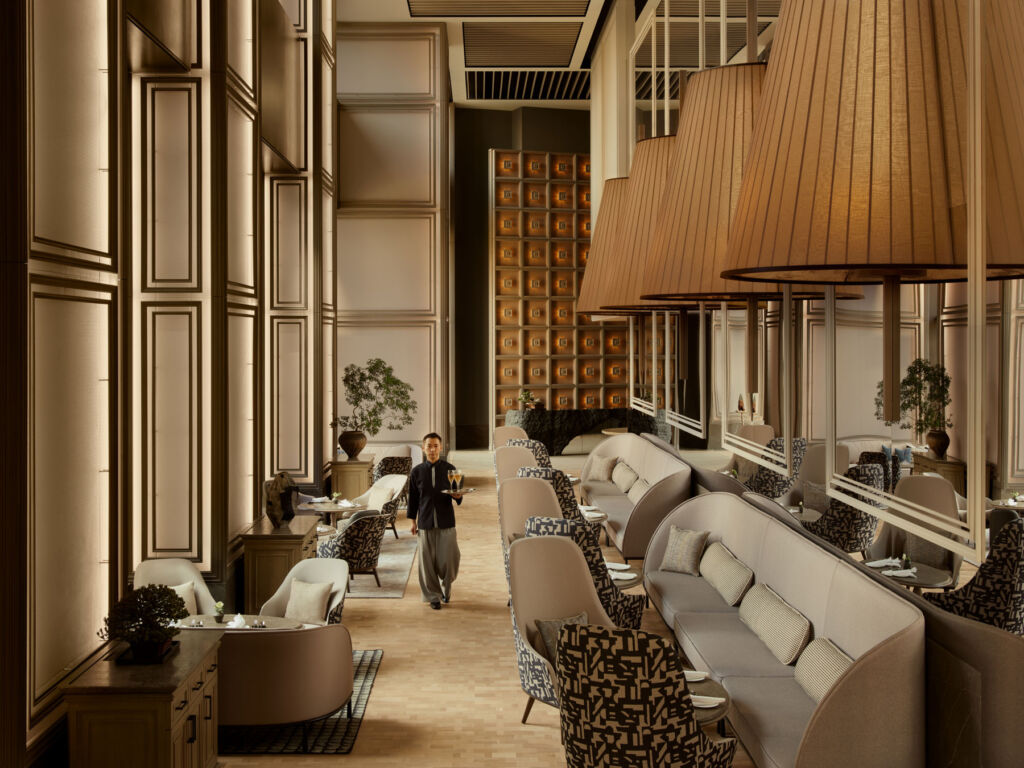
In harmony with Janu’s core values, Gathy’s design fosters purposeful connections, uniting individuals within a space where the mind, body, and spirit can flourish. His design vision for Janu Tokyo epitomises refined luxury blended with thoughtful functionality.
Carefully selected materials further amplify the hotel’s visual appeal, enveloping guests in a world of sophisticated luxury.
Janu Tokyo has three distinct arrival points, each designed to immerse guests into a world where architecture and nature meet. The liberal use of Italian marble and French-inspired touches, along with European and Asian Japanese elements, produces a vibrant, welcoming and multicultural atmosphere.
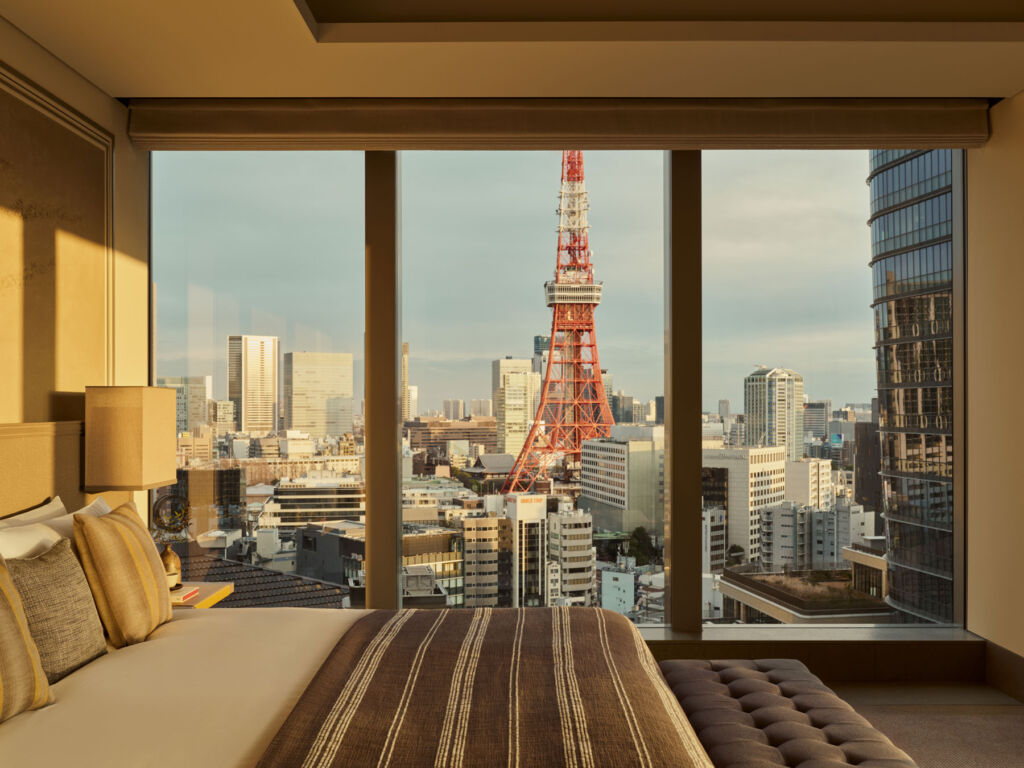
The hotel contains 122 light-filled guest rooms and suites, many with glowing sliding doors inspired by Parisian window apartments and private balconies with views of Tokyo.
The suite’s interior design blends the best of East and West, and the clever use of materials and earthy colours results in a Zen-like ambience. In keeping with modern design trends, the suites have a somewhat minimalist feel, with storage spaces being concealed behind doors and panels to produce a clean, clutter-free environment.
Particular attention has been paid to sustainability and the environment. Jean-Michel Gathy has put these at the forefront of the design, integrating green spaces to promote well-being. The plants in the interior spaces help to improve air quality and add to the serene feel, encouraging guests to connect with nature.
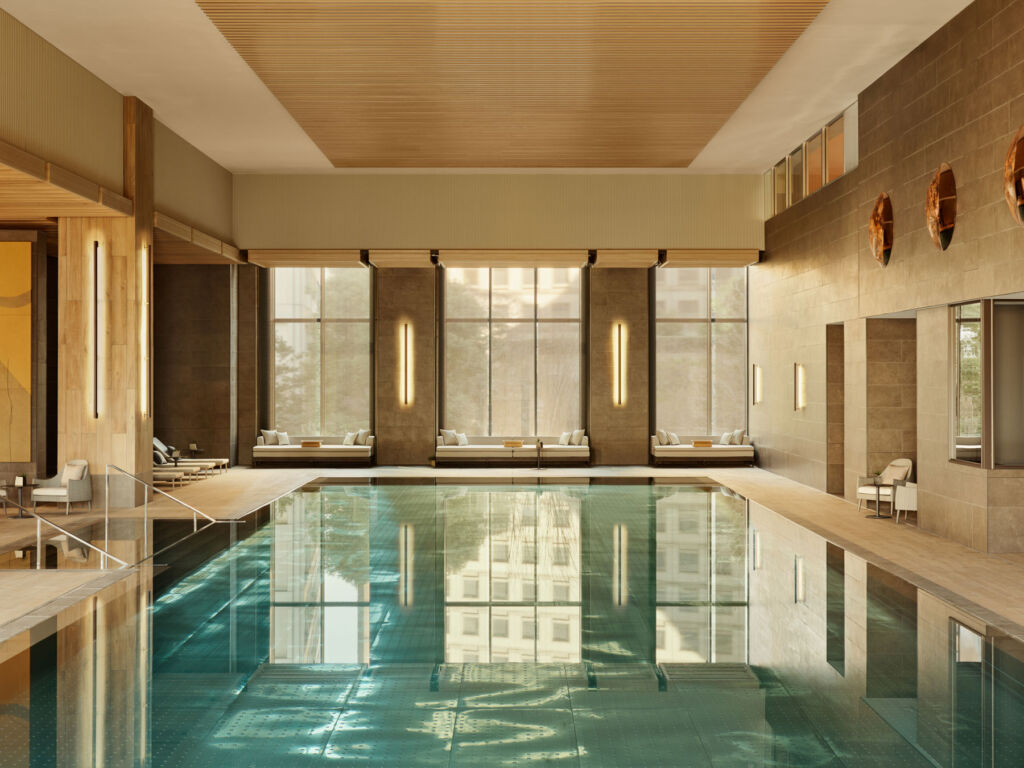
The focus on wellbeing is evident throughout Janu Tokyo, and there are few better places to experience this than the hotel’s 4,000 sqm spa and wellness centre. The highlights include:
- Access to Tokyo’s largest gym, spanning 340 sqm
- A 25m swimming pool
- Five Group Movement studio
- Seven treatment rooms, two Spa Houses, and a hydrotherapy area featuring a Hammam or Banya
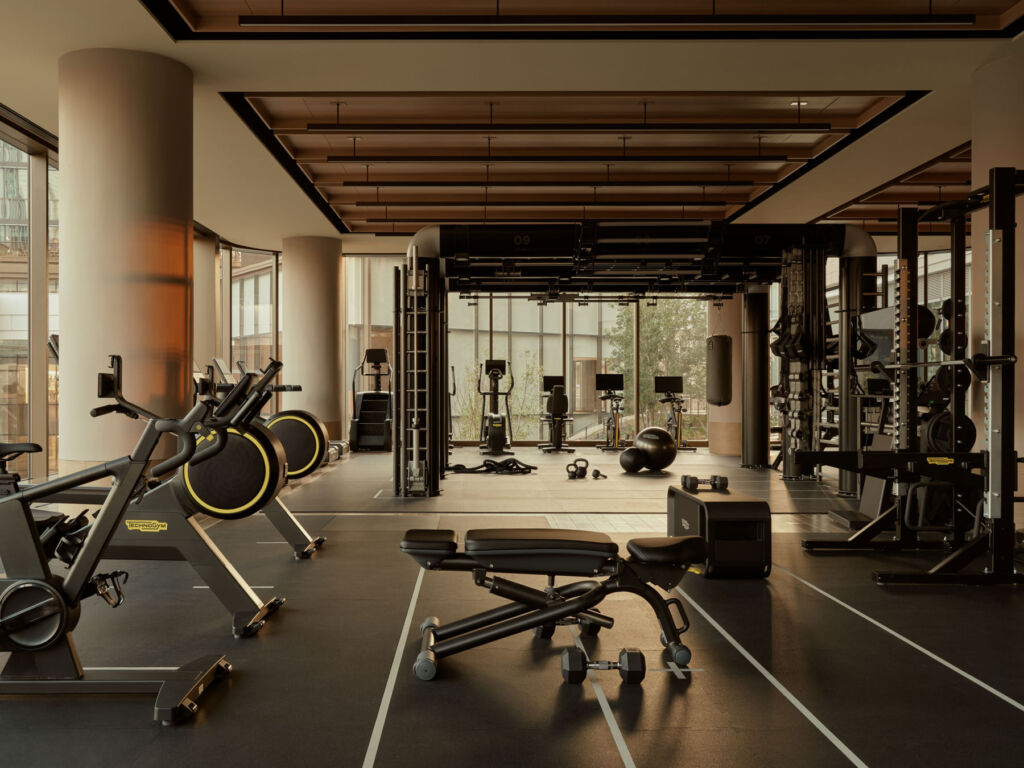
The spa and wellness centre’s minimalistic aesthetic provides a soothing environment, encouraging guests to unwind. In keeping with the hotel’s main design ethos, the spaces have a timeless fusion of Asian-inspired interiors, which are infused with contemporary European accents.
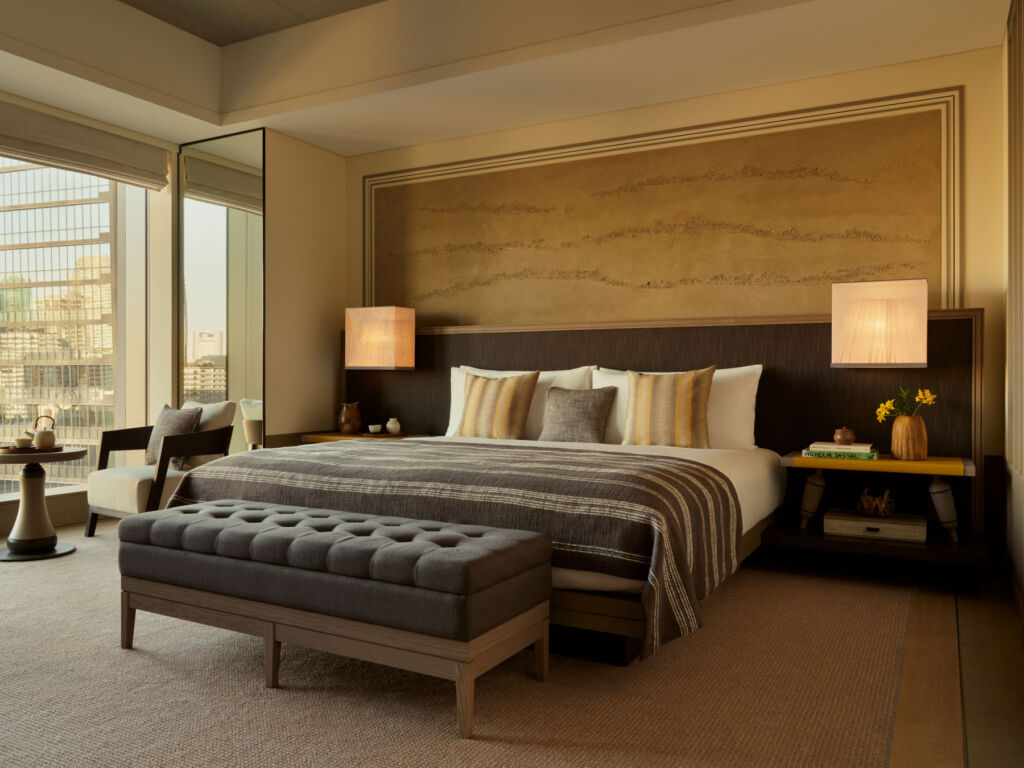
Some of the other beautiful design touches introduced by Jean-Michel to Janu Tokyo include using Sakan, which is a traditional Japanese form of plastering. The Sakan is applied by hand and has been used on the walls of the hotel. Vibrant colours have been used throughout the hotel, through artwork and within the hotel’s architectural features, reflecting the vibrancy and socialising concept of the Janu brand.
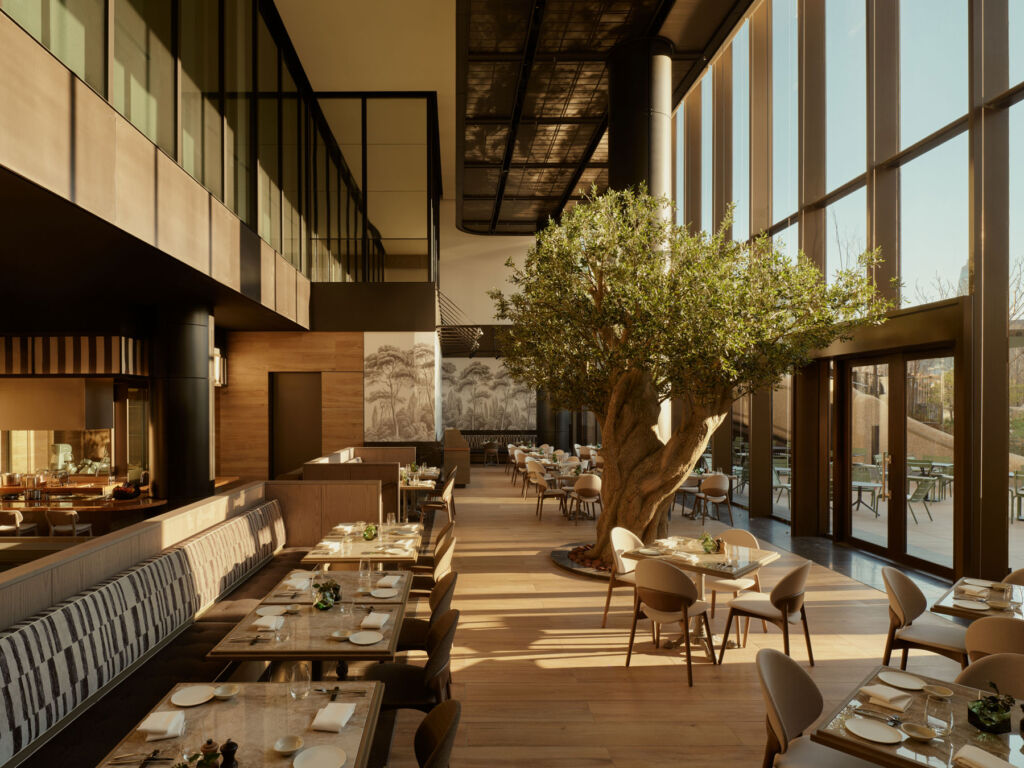
About Jean-Michel Gathy
Born in Belgium in 1955, Jean-Michael was still a child when he discovered his passion for geography and architecture. At the age of nine, he was entrusted with the responsibility of organising family holidays and planning a journey across Europe, on which he incorporated different structures, villages and sceneries emblematic of each country.
After graduating in 1978, he left Belgium for Asia, where he’s lived for 42 years. In 1983, he founded DENNISTON, an architecture office specialising in the creation of innovative designs for top-of-the-line hotels, residences and other products in the hospitality sector.
Jean-Michel is regularly invited to be a speaker at professional conferences and is a jury member of the International Design Awards.
![]()

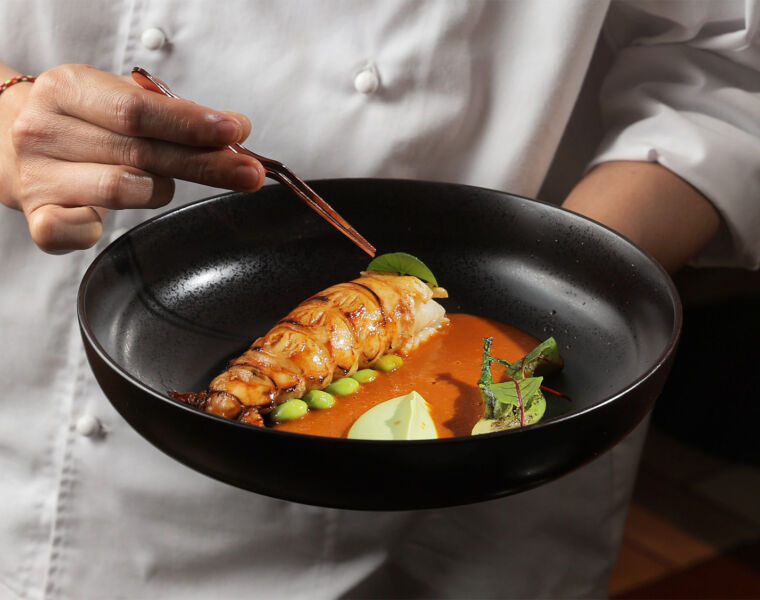
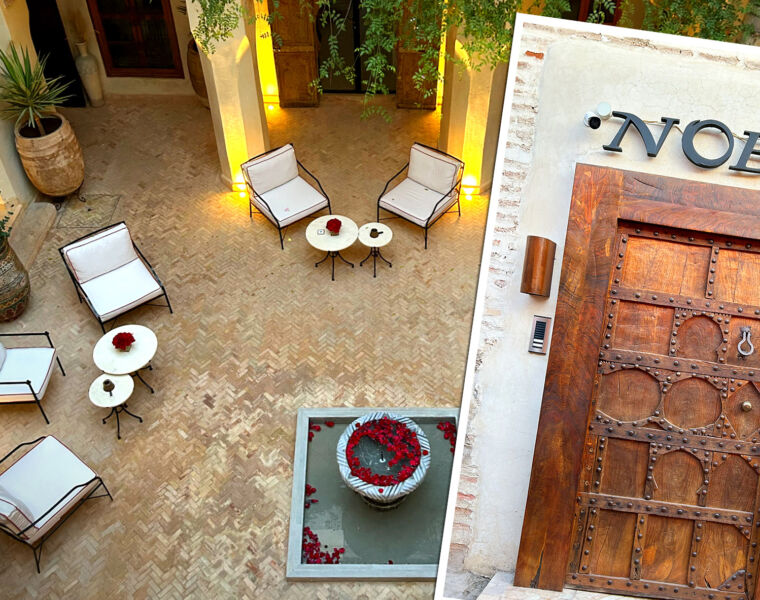
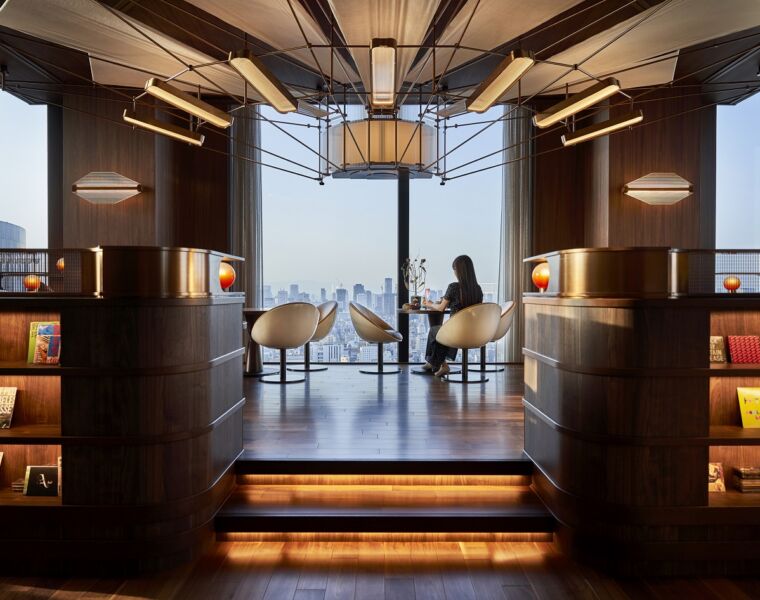
You must be logged in to post a comment.